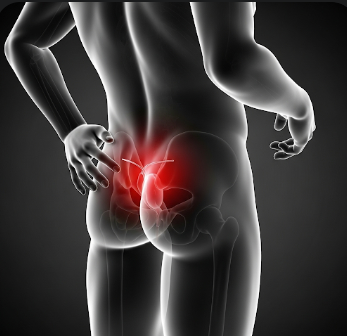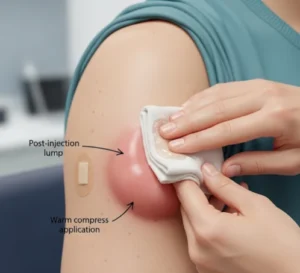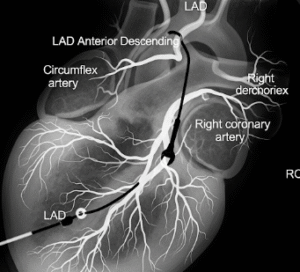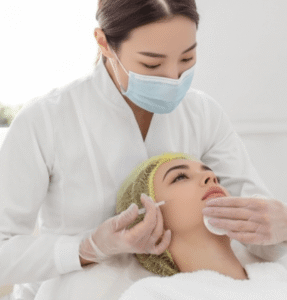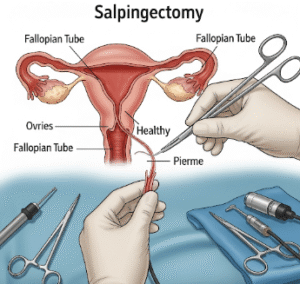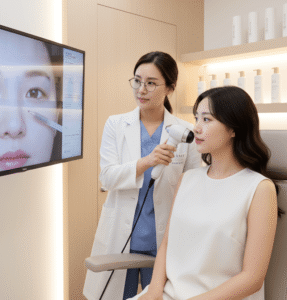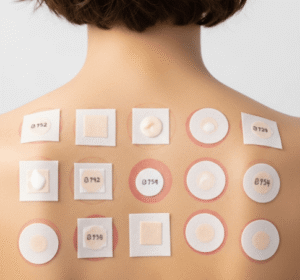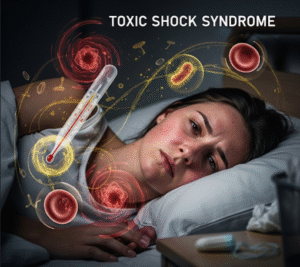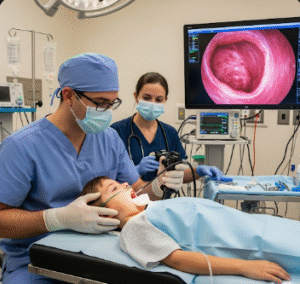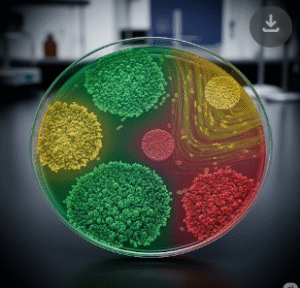Overview
Anal pain, also known as proctalgia, refers to discomfort or pain in or around the anus. It can range from mild irritation to severe, debilitating pain that interferes with daily activities such as sitting, walking, or using the bathroom. While minor conditions like hemorrhoids or fissures often cause it, persistent anal pain may indicate underlying medical problems. In Korea, hospitals and specialized clinics provide a full spectrum of treatment options—from conservative care to advanced surgical procedures—ensuring effective relief and proper management.
Key Facts
▶ Prevalence: Affects both men and women, more common in adults over 40.
▶ Duration: Can be acute (lasting minutes to hours) or chronic (lasting weeks or months).
▶ Severity: Pain ranges from mild itching to severe throbbing or sharp pain.
▶ Common Causes: Hemorrhoids, anal fissures, infections, inflammation.
▶ Treatment Options in Korea: Includes medications, lifestyle changes, minimally invasive procedures, and surgical interventions.
What is Anal Pain?
Anal pain is a symptom characterized by discomfort or pain in the anal region. It can present as burning, throbbing, sharp, or itching sensations. Anal pain is generally classified into two main types:
▶ Acute Anal Pain: Sudden onset, often caused by minor injuries, infections, or hemorrhoids.
▶ Chronic Anal Pain: Persistent or recurring pain lasting weeks or months, sometimes due to chronic fissures, nerve issues, or pelvic floor disorders.
In many cases, anal pain may be accompanied by bleeding, swelling, or discharge, signaling the need for professional evaluation.
What Symptoms Are Related to Anal Pain?
▶ Bleeding during bowel movements – Often linked to hemorrhoids or fissures.
▶ Itching or irritation – May result from infections or dermatitis.
▶ Swelling or lumps near the anus – Can indicate hemorrhoids, abscesses, or cysts.
▶ Discharge or mucus – Often a sign of infection or inflammatory bowel disease.
▶ Pain during sitting or walking – Typically associated with chronic conditions or abscesses.
▶ Anal muscle spasms (Proctalgia Fugax) – Sudden, intense pain episodes caused by sphincter muscle spasm.
What Causes / Possible Causes
▶ Hemorrhoids: Swollen veins in the anus causing pain, itching, and bleeding.
▶ Anal Fissures: Small tears in the anal lining, often due to constipation or straining.
▶ Anal Abscess or Fistula: Infections in anal glands causing swelling, pus, and chronic pain.
▶ Proctalgia Fugax: Sudden anal muscle spasms leading to sharp, intense pain.
▶ Inflammatory Bowel Disease (IBD): Chronic conditions like Crohn’s disease or ulcerative colitis.
▶ Sexually Transmitted Infections (STIs): Herpes or gonorrhea may contribute to discomfort.
▶ Skin Conditions: Dermatitis, fungal infections, or psoriasis affecting the anal region.
▶ Poor Hygiene or Irritants: Harsh soaps, excessive wiping, or prolonged moisture aggravating the area.
When Should I See My Doctor?
▶ Severe or persistent pain – Lasting more than a few days or recurring frequently.
▶ Bleeding or pus discharge – Could indicate serious infection or anal cancer.
▶ Fever or swelling – Suggests infection or abscess formation.
▶ Pain during bowel movements affecting daily life – Needs urgent evaluation.
▶ Changes in bowel habits – Diarrhea, constipation, or unexplained weight loss.
Note: Early evaluation ensures proper diagnosis, prevents complications, and allows timely treatment.
Care and Treatment
▶ Warm Sitz Baths: Sitting in warm water for 10–15 minutes several times a day to relieve pain and relax anal muscles.
▶ Dietary Adjustments: Increase fiber intake and fluids to prevent constipation and straining.
▶ Topical Treatments: Over-the-counter creams or ointments to soothe irritation and reduce swelling.
▶ Pain Relief Medications: NSAIDs or other analgesics for mild to moderate discomfort.
▶ Good Hygiene: Gentle cleaning, avoiding harsh soaps or excessive wiping.
▶ Avoid Prolonged Sitting: Use cushions or take regular breaks to reduce pressure.
Treatment Options in Korea
Medical Treatments:
▶ Prescription pain relievers, anti-inflammatory medications, and topical anesthetics.
▶ Stool softeners or laxatives to reduce straining and facilitate bowel movements.
Procedures and Surgeries:
▶ Rubber Band Ligation or Sclerotherapy: Common treatment for internal hemorrhoids.
▶ Anal Fissure Surgery: For chronic fissures not responding to conservative therapy.
▶ Drainage of Abscesses: Minimally invasive procedure for infected anal abscesses.
▶ Fistulotomy: Surgical repair for anal fistulas.
Rehabilitation & Support:
▶ Pelvic Floor Therapy: Exercises to relax anal muscles and improve control.
▶ Postoperative Care: Structured follow-up programs in Korean hospitals to minimize recurrence.
▶ Specialist Clinics: Colorectal specialists in Seoul and Busan provide comprehensive care for chronic or complicated anal pain cases.

